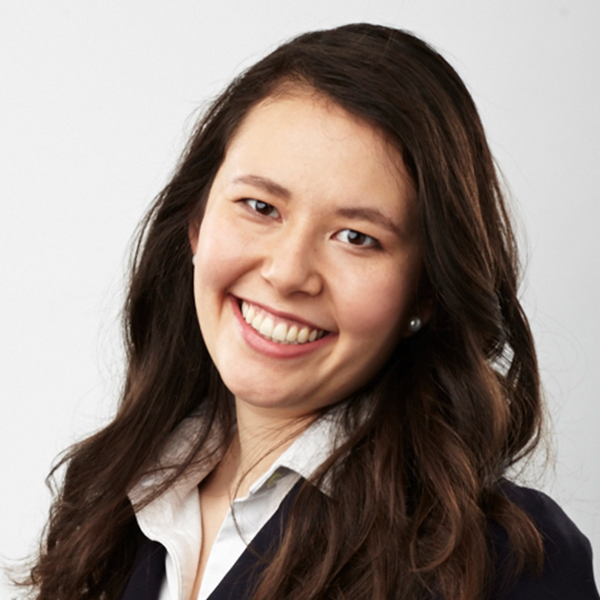From commiserating over incomprehensible lectures and rehearsing for moot tryouts to hitting up pub nights and attempting to lift heavy at the athletic centre, law school friends are essential. Plus, your classmates are probably pretty cool people, and you’d be remiss for not befriending at least a handful.
From commiserating over incomprehensible lectures and rehearsing for moot tryouts to hitting up pub nights and attempting to lift heavy at the athletic centre, law school friends are essential. Plus, your classmates are probably pretty cool people, and you’d be remiss for not befriending at least a handful.
But there’s something to be said for getting out of the law bubble every now and again. Hang out with those who don’t care about the intricacies of civil procedure, who won't put up with the third rehashing of your evidence exam and who can remind you there’s more to life than grades, summer jobs and student debt.
“I am always brought back down to Earth when I start trying to explain how we are graded at U of T Law or when I mention the name of a firm and I am met with blank stares,” says Christina Roussakis, who just completed 2L at the University of Toronto.
So where can you find these magical, non-law creatures? If you’re studying where you grew up, went to school or worked, make the effort to keep up with your pre-law friends. Don’t let grade anxiety dissuade you from your regular hangouts, be they cycling, wine tasting or binging teenage soaps on Netflix. You were a person before you were a law student, and engaging in those pastimes with those friends helps ensure you don’t forget that.
“I am really clear on who my closest friends are,” Roussakis says. “This means I make some sacrifices — I don't go to [law school pub nights] very often because I have really amazing friends outside of law school, and I want to make time to see them.”
And when she does see those friends, Roussakis makes that time count.
“I am not on my computer or on my phone. On my best days, that means I am also not just spending the time we have griping about law school, although I think it is OK for that to happen sometimes,” she says.
But if you’re in a new city in which you have no connections, branching out beyond law land can be much harder. One option is to be ultra-upfront about your search, and download a friend-making app such as Bumble BFF. I have been on five app-arranged friend dates. These mostly involved coffee, though I also played board games with one and went to a jungle gym for grownups with another. While I haven’t seen any of those folks again, these meetings offered excellent friend-making practice, and you can apply those skills in more natural settings. How do you platonically talk to a stranger one on one? How do you politely extricate yourself from a tiresome conversation? How do you suggest a second friend date without seeming too desperate? If you blunder terribly on an app-arranged friend date, the stakes are fairly low. You may very well never see this person again, and you can each continue on your separate befriending quests.
The stakes are higher, as are the potential rewards, if you commit to an off-campus activity that requires you to regularly show up. Repeat exposure to the same people, in a context you both enjoy, makes it more likely you’ll click (sorry, algorithms). But remember you’re playing a long game, and unlike a Bumble BFF match, don’t expect to set up a lunch date after one engaging conversation. I started volunteering at a soup kitchen at the start of 1L, and 18 months later, I got coffee and went to a barre class with a fellow volunteer with whom I’d often made small talk. We now hang out a couple times a month beyond volunteering.
For Roussakis, becoming friends with a passing acquaintance is “all about transition.” She started by smiling at a woman she saw a few times at her condo gym. When they kept working out at the same time, they started waving and then making small talk. And when they ran into each other at another condo event, they exchanged numbers and made plans to get coffee.
“I can't even remember who suggested exchanging numbers because it wasn't that important. I think the important part is it was clear that we were both open to friendship and eager to hang out,” Christina notes, adding they now hang out about once a month outside of the gym.
Since starting law school, Roussakis has also befriended the people she sees every morning at the on-campus athletic centre and those in her off-campus acting and improv classes.
“It isn't about being best friends with every single person you meet,” she says. “Many of my friendships at [the athletic centre] are limited to the time I spend there in the morning, but I still cherish those friendships and find them really fulfilling.”
The big caveat is becoming adept at reading each situation, she notes. “I have had a few times where a friendly smile has been perceived as romantic interest, but that can always be dealt with by setting really clear boundaries. On the flip side, if it seems like someone is not comfortable with you smiling at them or does not want to talk to you, then respect that and give them space.”











